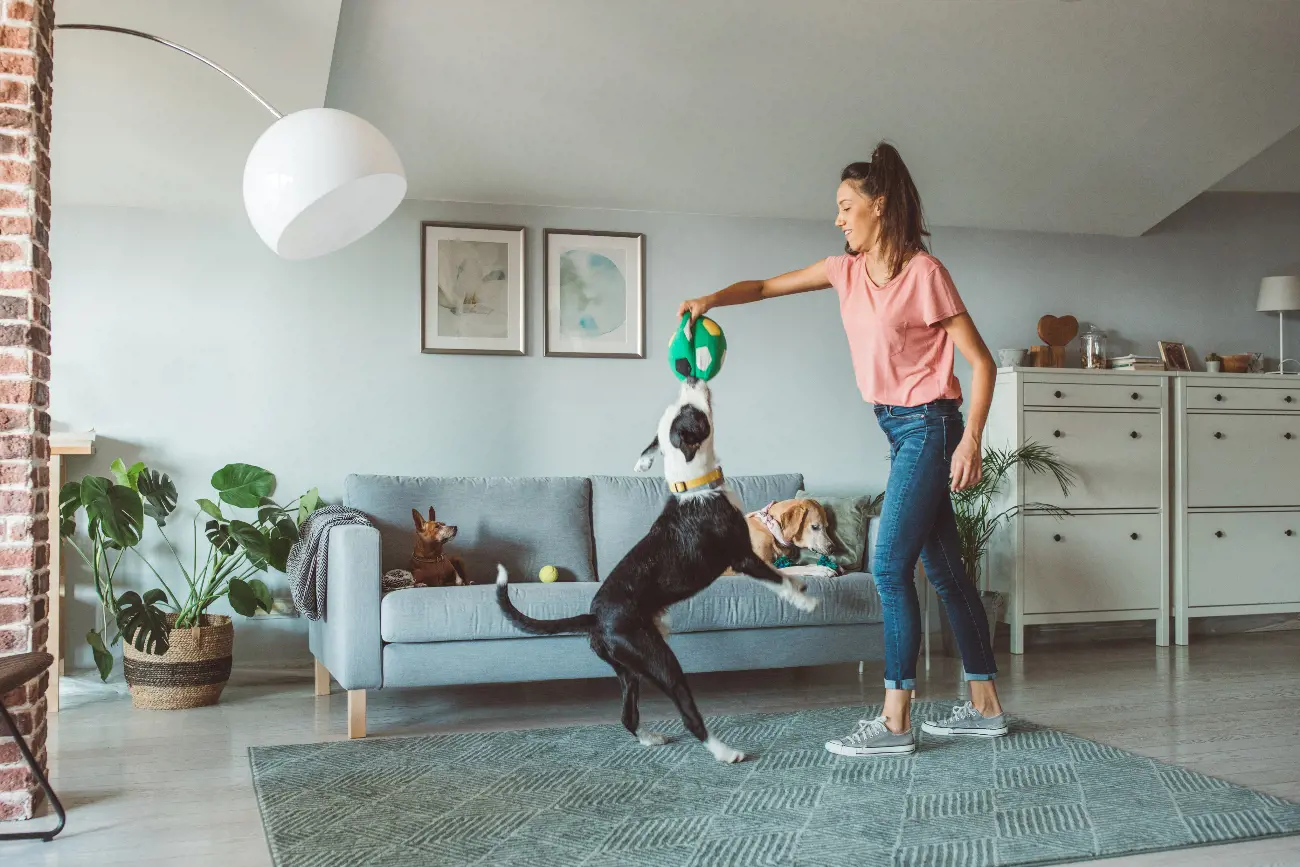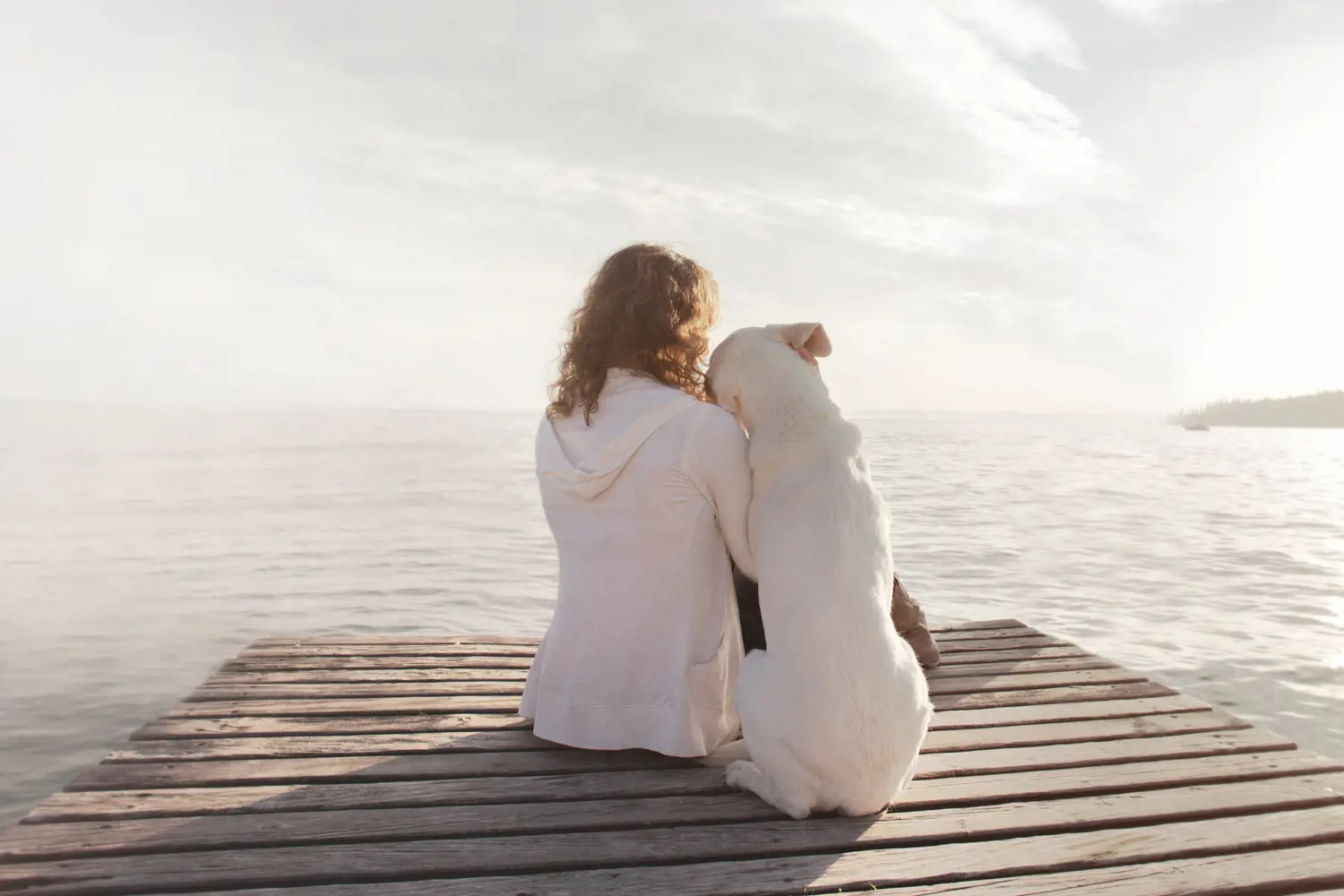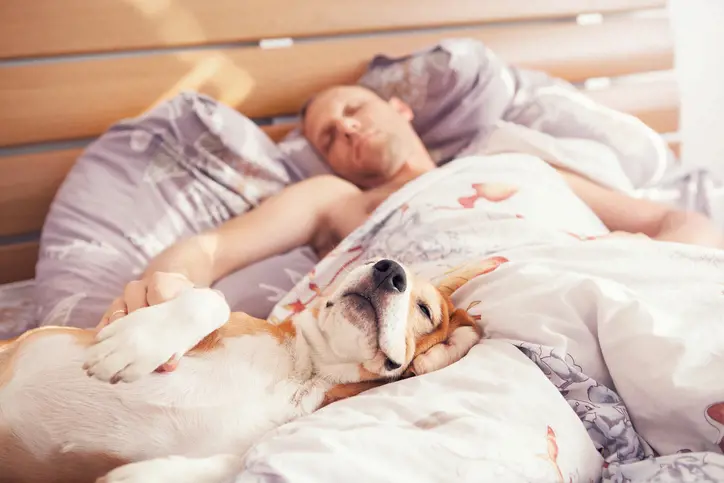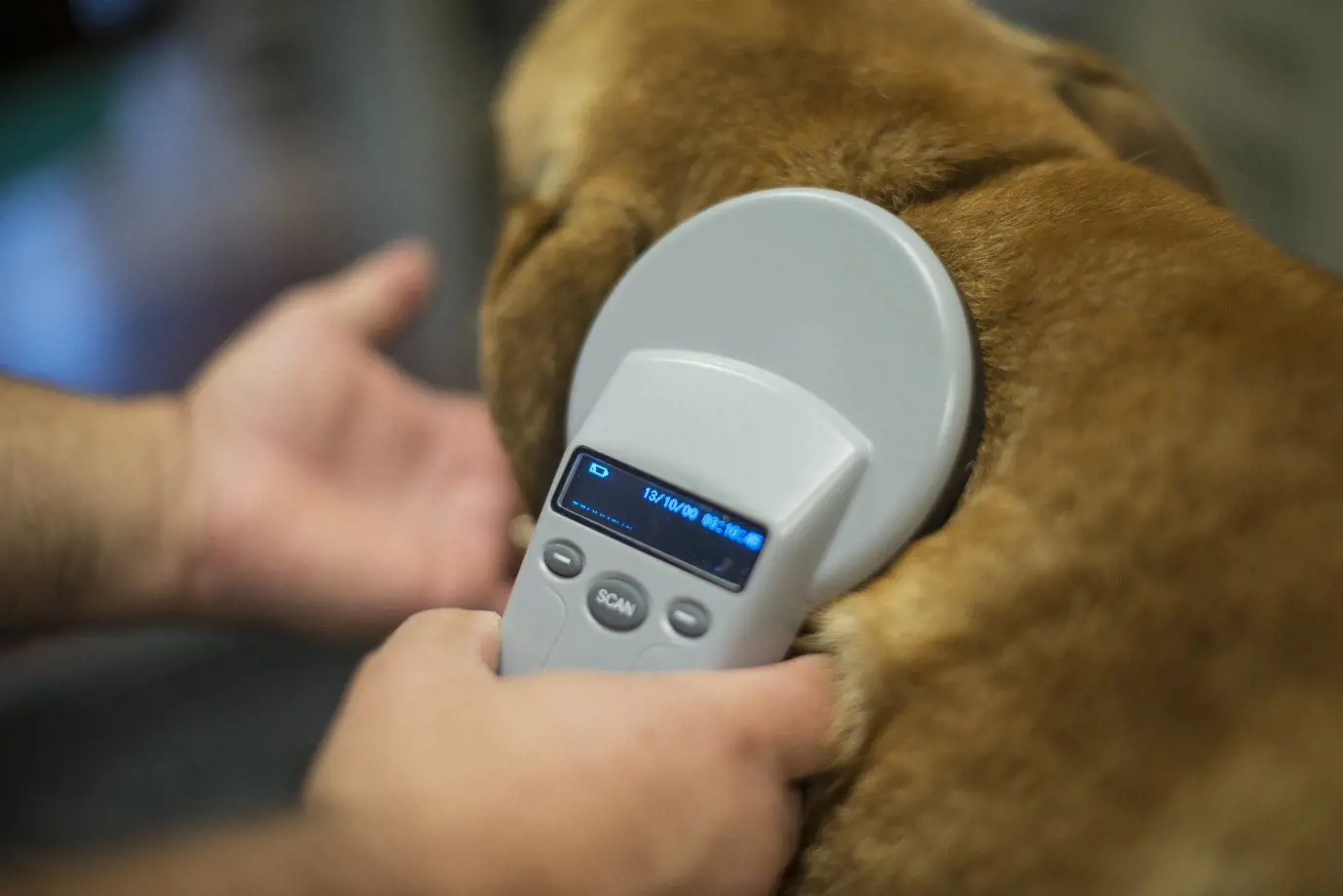Dog sitter or kennel - Checklist & FAQs
27th June, 2025

Counting down the days until your next holiday? Exciting times! That well-deserved break will be here before you know it.
Once the booking confirmation lands in your inbox and your travel insurance is sorted, it’s time to decide who’ll be taking care of your furry friend while you’re away.
The difference between dog sitting & kennels
Sadly, dogs can’t always come along for holidays, so you’ll need to arrange somewhere they can stay. You know your dog best and you’ll want them to be happy during your time apart.
That’s why it’s important to be well versed in the distinctions between dog sitting and kennels, so you can choose the right place for them. Whatever you decide to do, if your dog is content during their stay, it’ll make leaving them a little less stressful next time.
With many dog boarding options for you to choose from, it might feel daunting to have to pick just one. Don’t worry, we’re here to help make deciding a little easier.
Dog kennels
Kennels are purpose-built shelters designed for housing dogs. They typically provide food, water, a sleeping area, and access to wider spaces for exercise.
Depending on the design of the kennels and your dog’s temperament, they may be housed individually or share with other canines from their own family.
Benefits of dog kennels include:
- Designated spaces which help dogs feel comfortable and secure
- Well-structured feeding, exercise, and rest routines
- Opportunities for dogs to interact with other dogs in a safe, controlled environment
- Walking schedules and supervised outdoor play
- Professional care from trained staff who can administer medication and address health concerns
Dog sitting
Dog sitting usually means your dog can stay at home where they feel comfortable and familiar, this helps to reduce stress and anxiety for your pup. Not only that, but it also gives you peace of mind that they are being looked after in a safe environment.
Benefits of dog sitting include:
- Familiar sights, smells, and sounds
- Personalised care, attention, and interaction
- Daily feeding, walking, and playtime schedules kept
- Lower risk of exposure to illnesses
- Familiarity of home with their own bed and toys
How to prepare for a dog sitter
Ahead of your holiday, make sure that your home is clean, tidy, and welcoming. Then, write clear instructions on caring for your dog and leave plenty of supplies for your pet sitter to use.
Create a designated space for your dog, make sure your sitter knows where the food is kept, and provide details of who to contact in an emergency.
How much will it cost?
Dog sitting rates may vary from sitter to sitter and could also depend on other factors such as your location, your dog’s energy level, the length of the stay, and any additional services needed.
Ask for recommendations from family and friends who’ve used similar services and compare quotes with the service provided.
Do a trial run
Arrange to meet with your dog sitter ahead of time. This gives your dog chance to adjust to a new person and helps to establish the sitter as the temporary head human of the household.
They’ll be providing commands on dog walks and in charge of playtime, so you want to be sure that your dog will listen to and obey the sitter. Meeting up will also give you an idea of how well the sitter interacts with your dog, offering you peace of mind.
Leave a list of essential information for your sitter
You want your dog’s routine to stay consistent whilst you’re away. So, write out all the details of any schedules that will need to be kept and instructions for any special tasks the dog sitter will have to complete, such as administering medication.
Communicate what your dog does and doesn't like
You know what’ll get your dog’s tail wagging and what won’t. Tell your sitter as much about them as you can, including:
What types of attention or affection they enjoy
- Which toys they love and what games they like to play
- Their favourite walks and open spaces
- Which kinds of rewards and praise are effective
As much as you’ll enjoy building a picture of all the things your dog loves to do, your sitter will also need to know what to avoid.
Things to mention might include:
- Forms of affection your dog finds threatening or annoying
- Sounds that trigger fear in your dog
- Smells that have been known to bother them
- Which streets/open spaces to avoid
Feeding schedules
Your dog’s feeding schedule will depend on their age and also the routine you have established between yourselves. Dogs get used to being fed at the same time each day, so making a note of their mealtime routine will help your sitter to stick with it.
Food and dietary restrictions
Make sure your sitter knows where to find your dog’s food. They’ll need to be able to portion meals correctly and be aware of any food allergies or intolerances your dog may have.
Emergency contacts and protocol
Make a note of your contact information as well your vet’s name, number, and practice details. It’ll also help to include your dog’s microchip number and instructions for what to do in an emergency.
If your dog has friends they meet regularly, make a note of the owner’s contact details so that play dates can be arranged, or support can be sought.
Escape prevention
Make sure to familiarise your dog sitter with any potential escape routes from your home and garden, this could include instructions on what to do with the dog if the doorbell rings.
Make sure to block any known escape routes in the garden, such as gaps in fencing, before you go on holiday.
Regular updates while you're away
Make it clear to your sitter if you’d like to receive updates about your dog whilst you’re away. They might want to send you a photo on WhatsApp every now and then, or ask a quick question, so agree on the level of contact you’d be happy with before you go.
Preparing your home for a dog sitter
Before welcoming your chosen sitter, you’ll need to pet-proof your space to make sure it’s safe and homely for your dog.
Put away small items
Dogs can get into mischief when they’re left alone, even for a short time, so it’s best to hide anything that could be a safety hazard and make sure any cupboards are secured.
Set up a dog bed
Create a safe corner where your dog can feel secure and make sure to provide a comfortable bed for them as well as a cosy blanket.
Make sure food is replenished
Food and water should be readily available, and you might want to stock up on extra supplies just in case.
Dog walking and waste cleaning supplies
Your pup may decide to relieve themselves when they’re let out into the garden, so make sure that waste bags and scoopers are easy to find. If they use a litter tray indoors, provide replacement litter and a scoop.
Your dog and their sitter will be going on walks together, so it’s important to make sure your sitter knows where to find a collar, lead, and harness. Demonstrate how to use each item if needed.
Make sure your dog’s first aid kit is well stocked and leave out a travel crate for use in an emergency.
Dog kennel preparation
Preparing your dog for their stay at boarding kennels can help to reduce stress not only for your dog, but also for you. Take the time to choose the right kennels and prep your dog for their time away so that you can enjoy your break knowing they’re being well looked after.
Take your dog for a tour of your chosen kennels so they can explore and familiarise themselves with the new environment in your presence. Let them interact with kennel staff and watch how they react to the overall experience.
Hopefully, this will help your dog to adjust to spending time there without you. You might even want to arrange a day when your dog can stay at the kennel and test the waters.
How much will it cost?
Dog boarding kennels range in price depending on factors such as the type of kennel, the breed of your dog, and the services you require.
Contact kennels directly and ask them about rates for your dog’s breed and any particular needs they have.
Vaccinations up to date
Whilst prepping your dog for their stay, make sure they are fully vaccinated as most kennels will ask for proof of vaccination against many diseases, including:
- Bordetella (Canine Kennel Cough)
- Canine Influenza Virus
- DAPP (Distemper, Adenovirus, Parainfluenza, and Parvovirus)
- Leptospirosis
- Rabies
Make sure to arrange for vaccinations to be given well in advance as some will need to be administered weeks before the first day of boarding.
Toys
Take home comforts such as blankets and their favourite toy(s) along with you as familiar items and scents can help soothe separation anxiety, allowing your dog to feel more settled at the kennel.
Medication
As part of preparing your dog for boarding, make sure they are protected against parasites. Fleas, ticks, and worms can pose a threat to other pets at the kennels, and most facilities will require proof that your dog is having preventative treatments for heartworm, intestinal worm, fleas, and ticks.
If your dog has been prescribed other forms of medication, make sure that staff at the kennels are aware of their specific requirements. At the same time, talk to them about any special dietary or behavioural needs.
Staff will find details of your dog’s routine, fears, triggers, likes, and dislikes particularly useful and this knowledge enables them to provide care that’s tailored to your furry friend’s needs.
Bedding
Kennels may provide bedding for your dog, but there’s no harm in asking if you can bring your dog’s own bed with them. Much like their toys and blankets, it’s another home comfort which can help them to feel calm and comfortable during their stay.
Collars
When you visit the boarding kennels, ask them whether you should pack a collar and lead for your dog. It may be that your dog won’t need their collar whilst in their enclosure, but both a collar and lead could be required when it’s time for walkies or exercise.
Emergency contact
Making sure you’re easily contactable will offer you peace of mind whilst you’re on holiday. Write down detailed emergency contact information and leave it with staff at the boarding kennels. You should include:
- Your name and mobile number
- An alternative contact’s name and mobile number
- Details of your dog’s veterinary practice
Talk to kennel staff about their emergency procedures just so you’re aware.
Specific kennel requirements
Social preferences
Just like their humans, dogs have varying degrees of social preferences.
Some will actively seek out playmates and thrive in an environment where they’re surrounded by other dogs. Others will be tolerant dogs who are usually friendly around fellow canines but may not desire too much interaction.
Another subsect of pooches will be selective when it comes to which dogs they’ll tolerate, they may be misconstrued as aggressive. Lastly, there are some dogs who prefer to avoid socialising altogether and may make it quite clear that they’d rather be left on their own. Alternatively, they may love to fight and consider it a fun activity.
As their owner, you will have a good understanding of where your dog sits on this spectrum. It’s best to give kennel staff a detailed understanding of your dog’s personality and their social preferences as it’ll help them to determine which dogs can mix with others during exercise and which can’t.
Treats
Your chosen kennels may encourage you to bring your dog’s favourite treats (plus Kongs, treat balls etc.) to ease the transition from home to boarding facilities.
They may also have their own stock of treats which could come out during playtime, walks, or feeding. If, for any reason, you would rather your dog isn’t given treats during their stay, be sure to make staff aware.
Summing up - Dog sitting vs Kennel
So, when it comes to making the decision between dog sitting and boarding kennels, it all comes down to what will help to keep your dog most content whilst you’re away.
If they enjoy spending supervised time with other dogs and don’t display excessive signs of separation anxiety, your dog may react well to the experience of boarding kennels.
If you’d feel better leaving them at home in the hands of an experienced dog sitter who can keep up their routine whilst giving your pooch one on one attention, that may be the route to take for you and your pup.
Whichever option you choose, we hope you have a wonderful holiday and come home to a happy hound.
Helpful Pages
Recent Posts
Pet Insurance Quote
- 98% claims paid *
- Claims paid directly to vets
- 24/7 vet video consultations
- Interest free monthly payments



